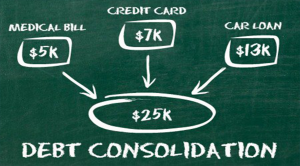What is a Trust Deed?

Being in debt can be a stressful experience – particularly if you don`t think you`ll be able to repay it within a reasonable timeframe.
If this is the case, and you`re a resident of Scotland, a Trust Deed may be the right solution for you. It`s a debt solution designed for people in your situation and is an agreement between you and your unsecured lenders in which you`ll be expected to repay as much of your unsecured debts as you can afford.
While you`ll be signing your rights to your possessions to a trustee (who can then sell your assets to pay your lenders), a Trust Deed can help you clear your unsecured debts in (usually) three years.
A Trust Deed is a voluntary agreement, and isn`t legally binding on all your lenders. It can, however, become a Protected Trust Deed – which is legally binding on your lenders.

Protected Trust Deeds – what are they?
Since a Protected Trust Deed is legally binding on all your unsecured lenders, they won`t be able to take any further legal action against you – as long as you stick to your side of the agreement. A Protected Trust Deed will, however, prevent you from applying for your own bankruptcy or for a debt repayment programme under the DAS (Debt Arrangement Scheme).
While you`re on a Protected Trust Deed, you won`t be protected against legal action from your mortgage lender (or any other secured lenders you have) if you fall behind on your payments. And you won`t be protected from action taken by any lenders you borrow money from after your Trust Deed has been signed.
How does a Trust Deed become a Protected Trust Deed?
For a Trust Deed to be classed as `protected`, there are certain criteria that must be met.
Once you`ve signed your Trust Deed, your trustee will contact the lenders you`re including in the agreement, asking them to agree to the terms you`re proposing.
Your lenders will be given a total of five weeks to send their response to your trustee. If they fail to respond within this time, they will be treated as if they`ve agreed to the terms.
After the five-week period is up, your Trust Deed will become protected by Scottish law – unless:
• 50% or more of your lenders (by number), or
• Lenders who you owe more than a third of your debt to…
…don`t agree to the terms laid down when your trustee contacted them.
What are the downsides to a Trust Deed?
As with any debt solution, there are certain downsides to a Trust Deed. For example:
• A Trust Deed will affect your credit rating, making it harder and/or more expensive for you to obtain further credit for six years. You may be prevented from holding selected jobs – as a company director, for instance.
• If you`re a homeowner, you may be required to release equity from your property.
What are the benefits of a Trust Deed?
There are several advantages to a Trust Deed. To name just a few:
• It can help you repay the money you owe at a rate you can afford.
• The unsecured debt you can`t afford to repay will be written off once you successfully complete your Trust Deed.
• It can give you a timeframe – a date by which you know your debt will be repaid (as long as you`ve stuck to the agreement all the way through).






